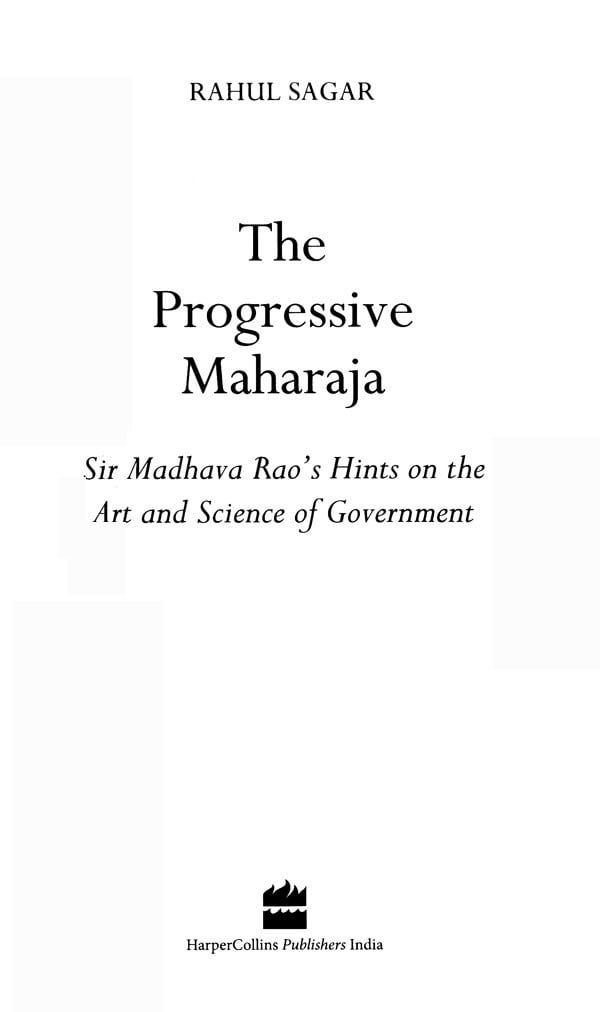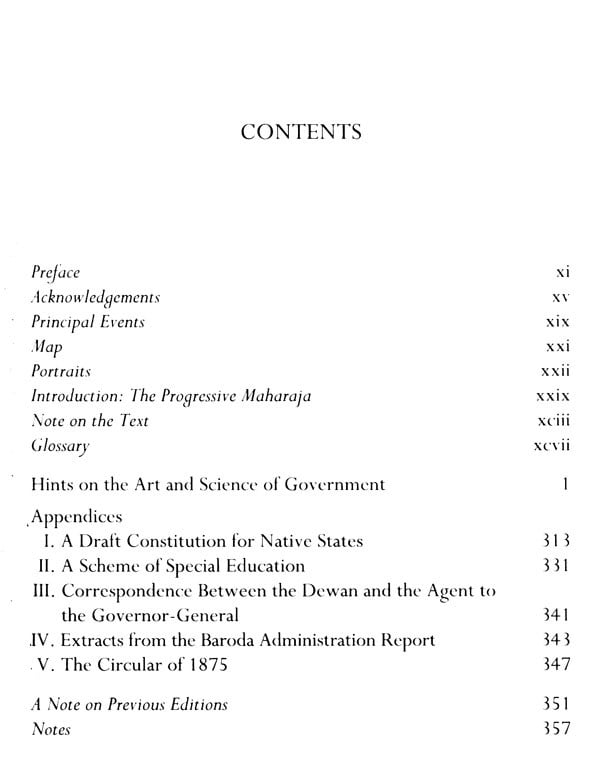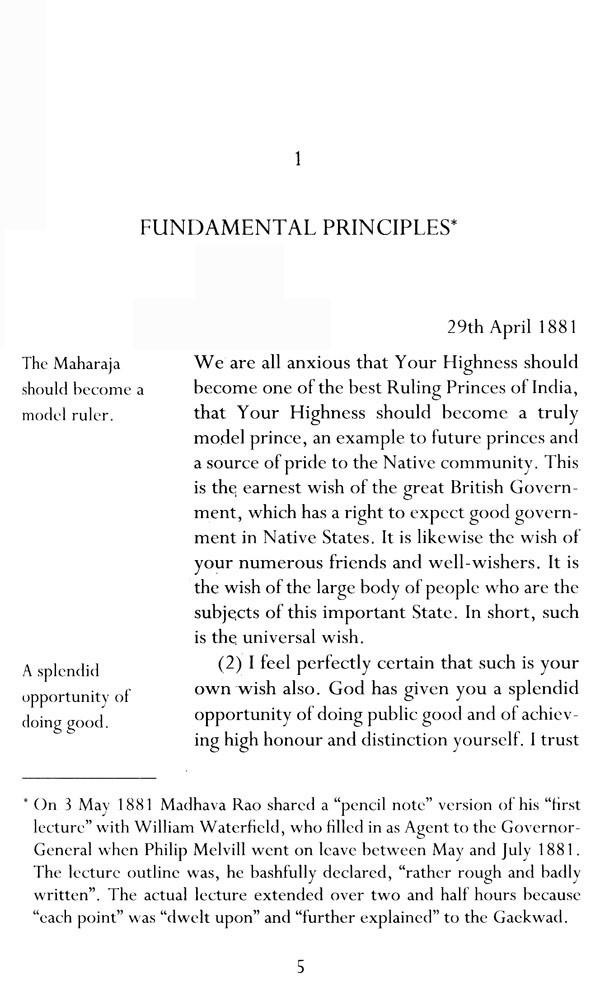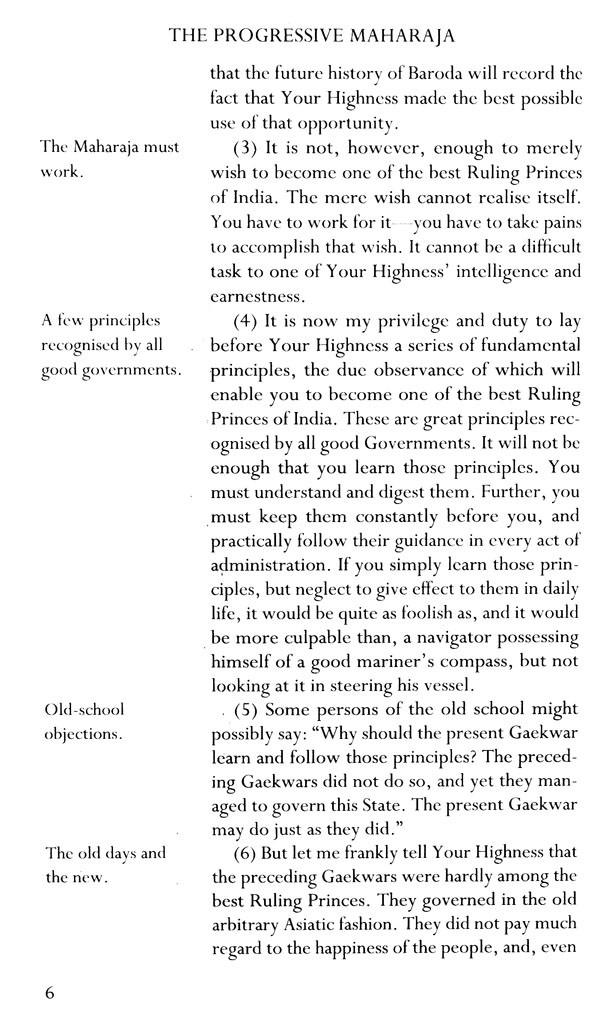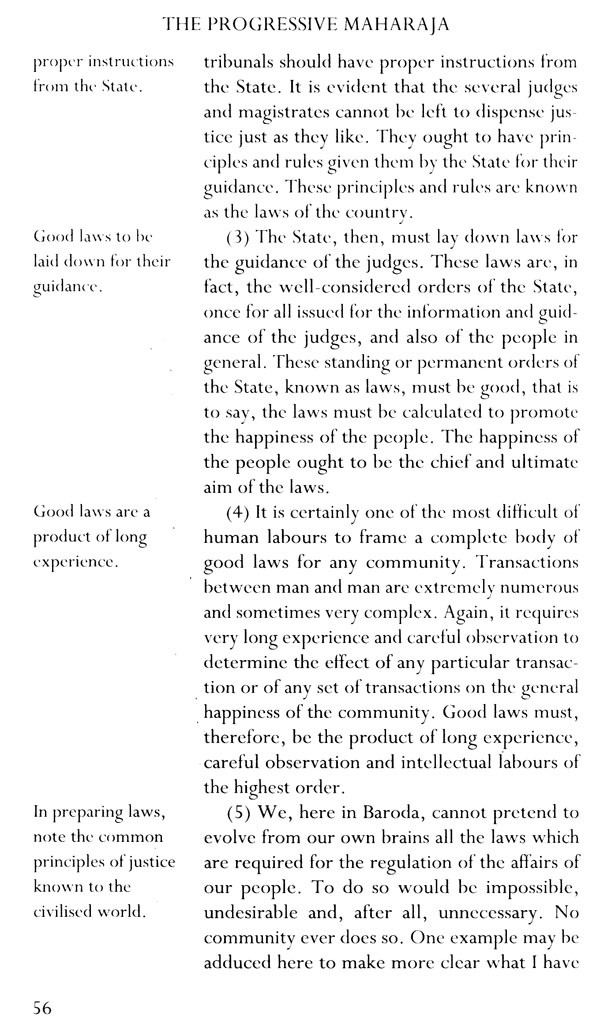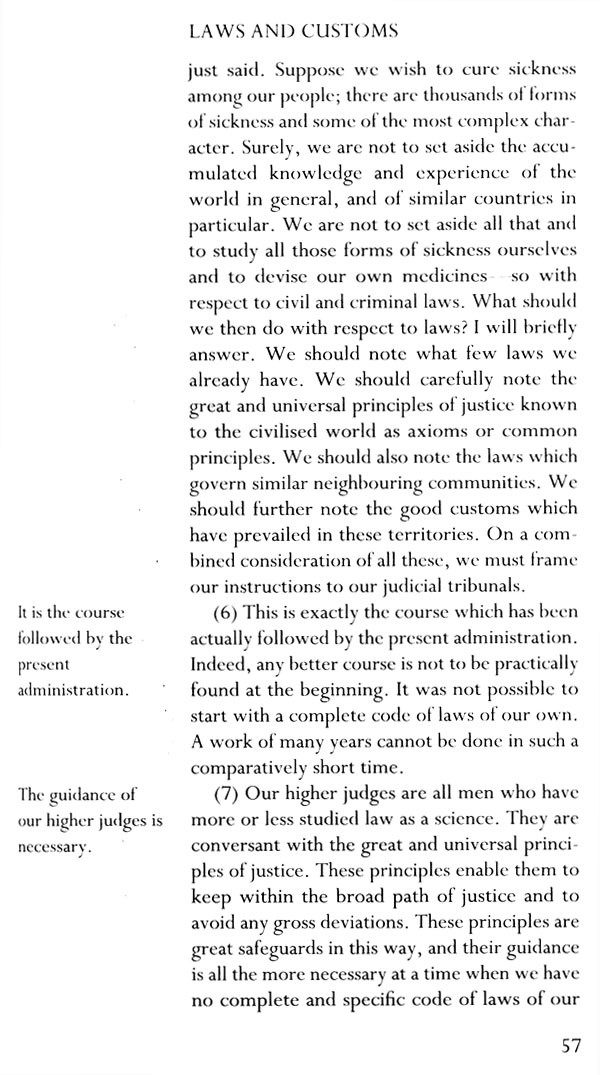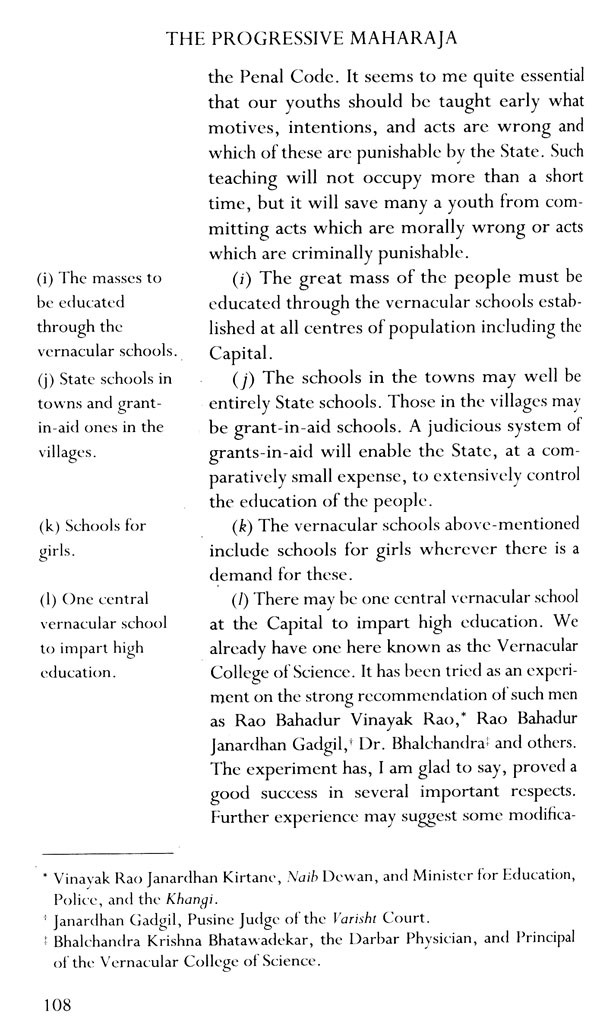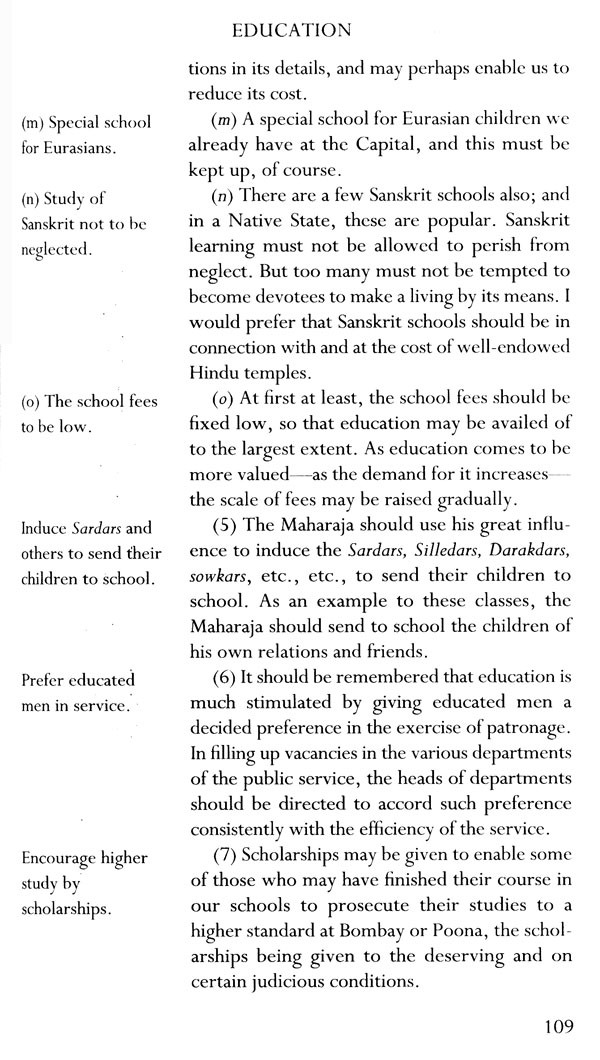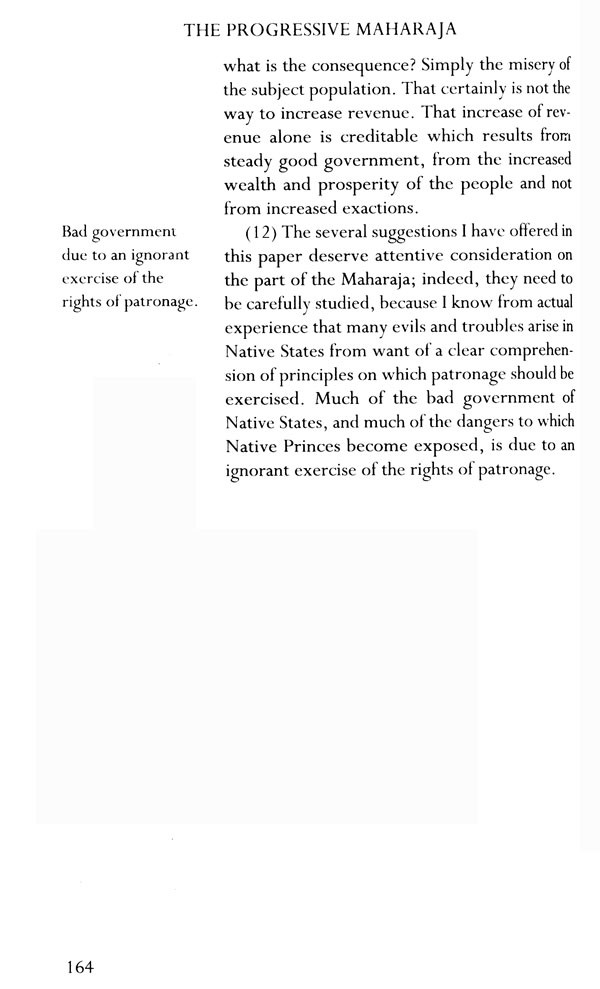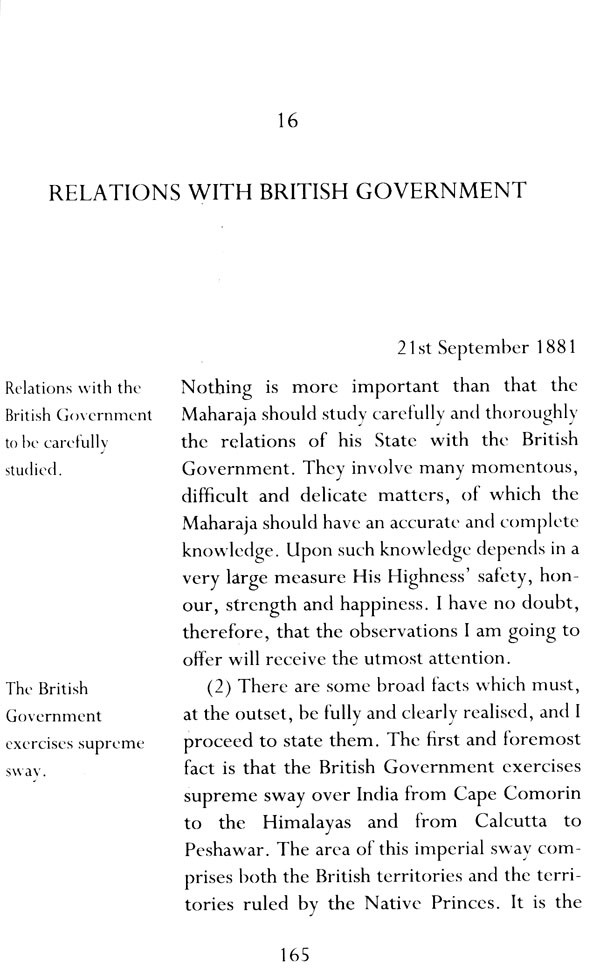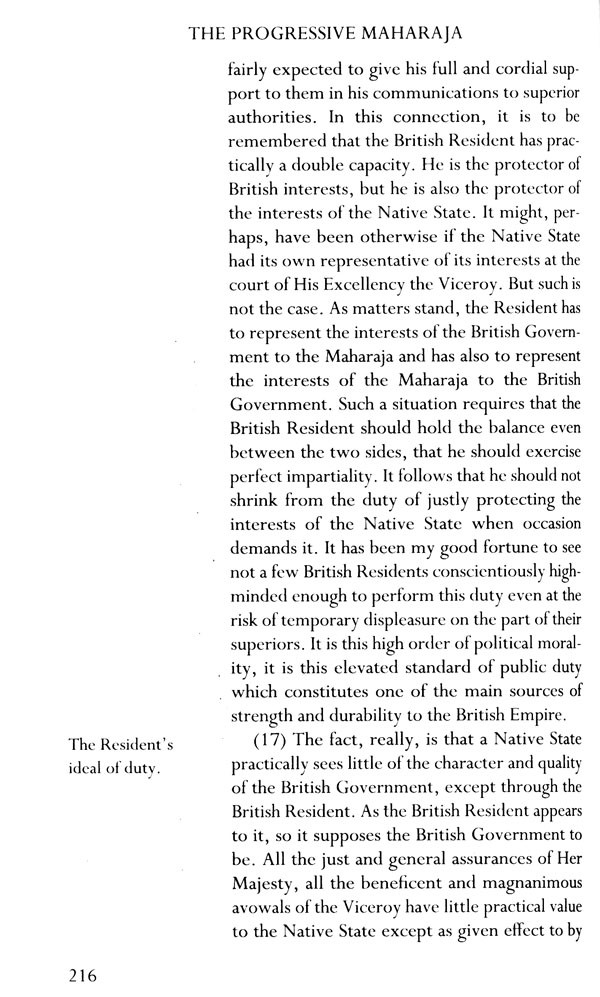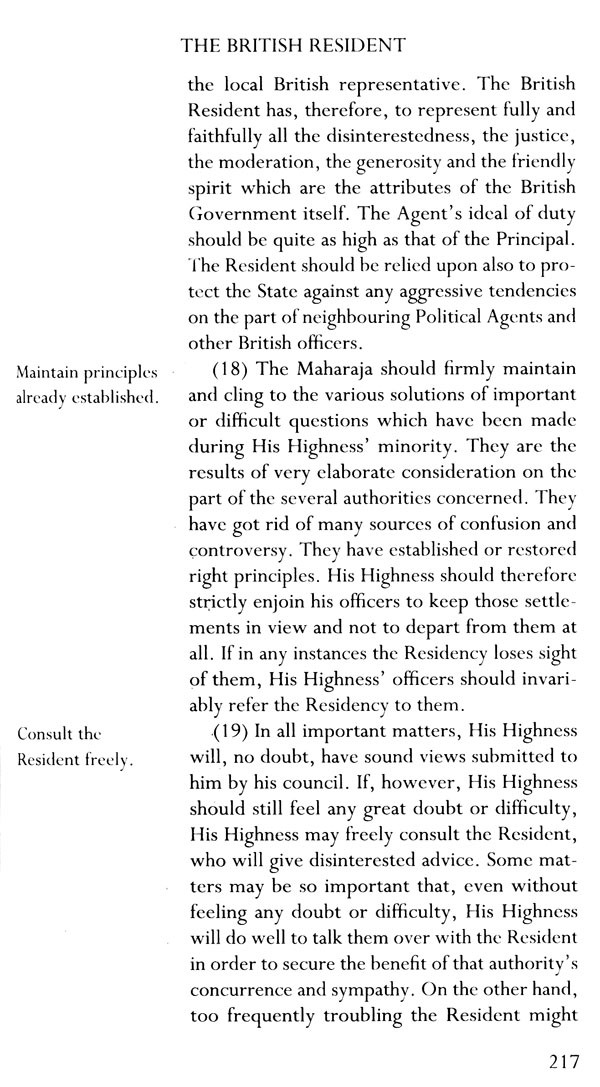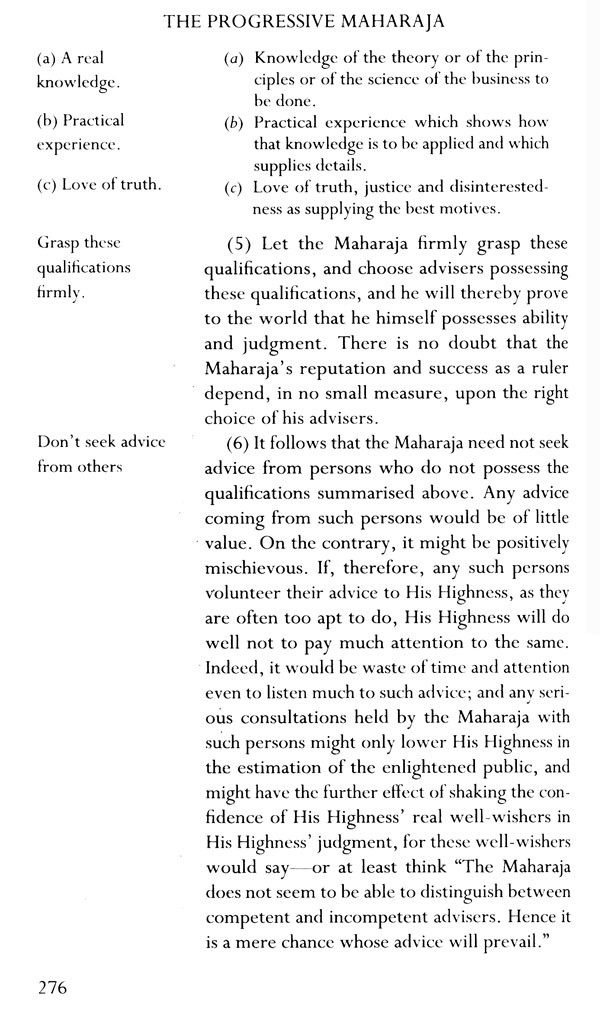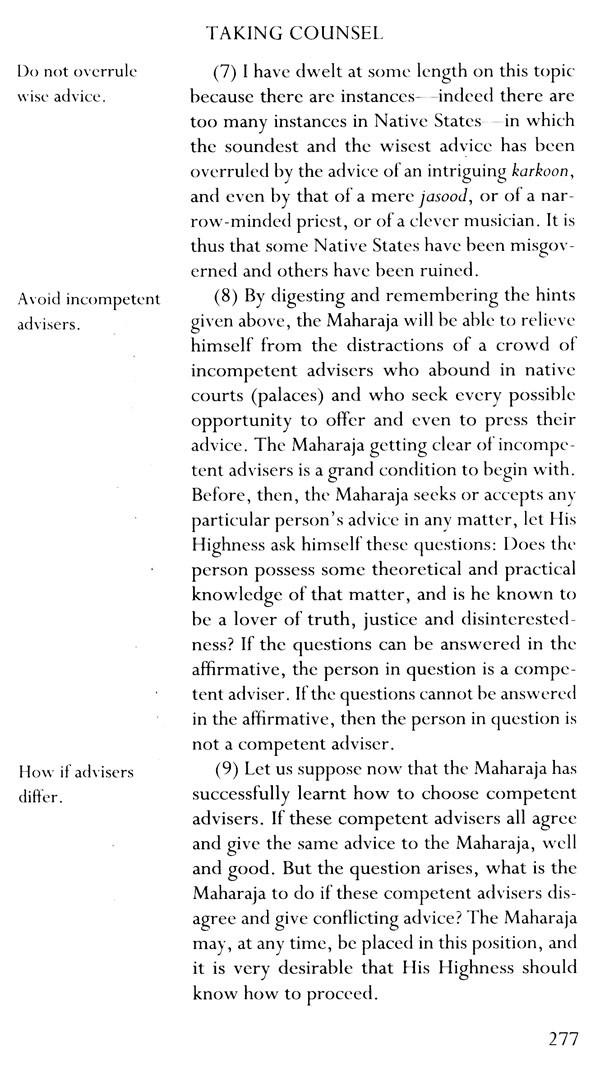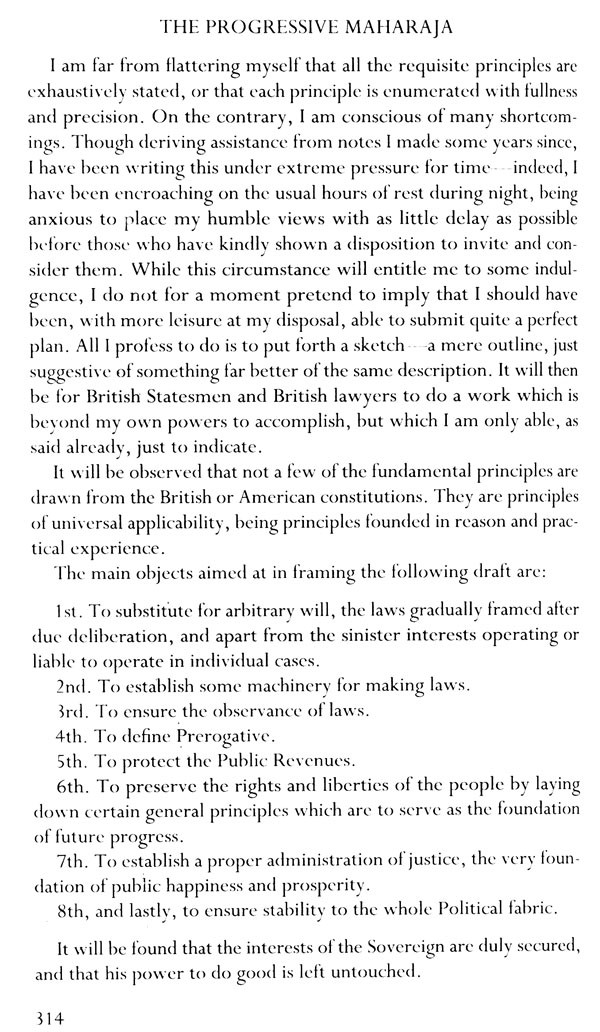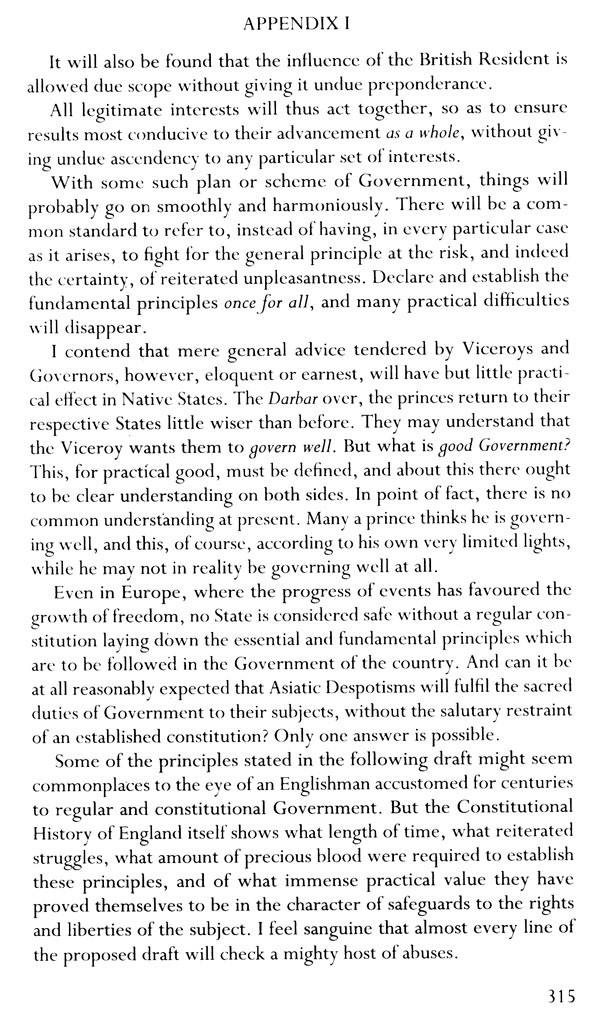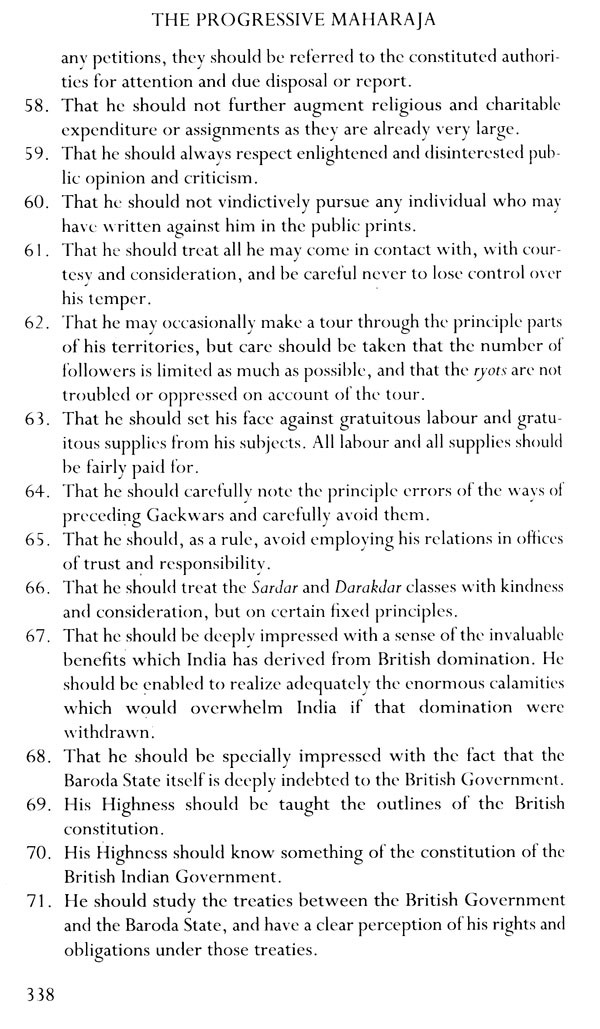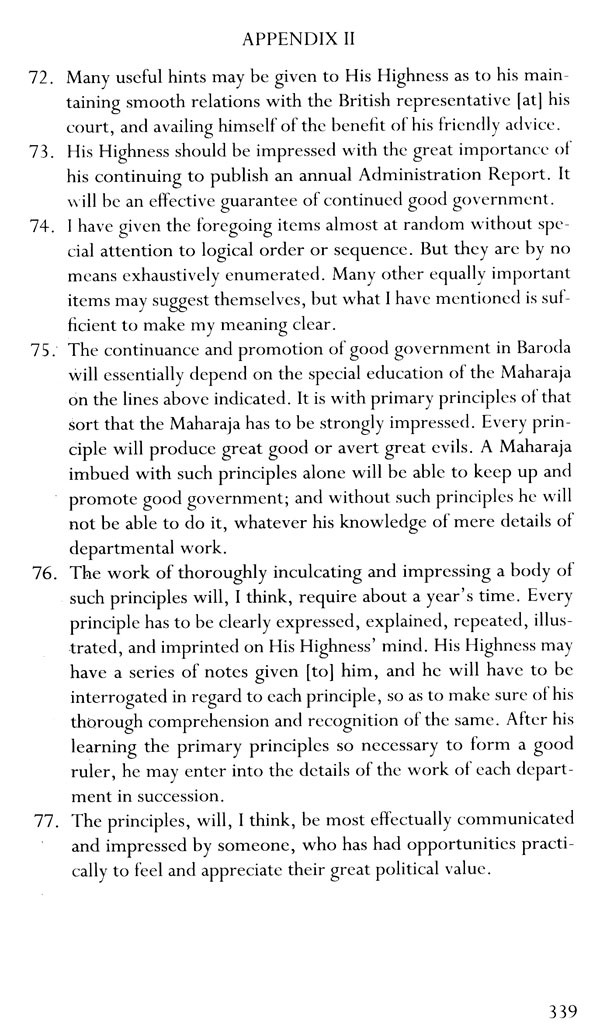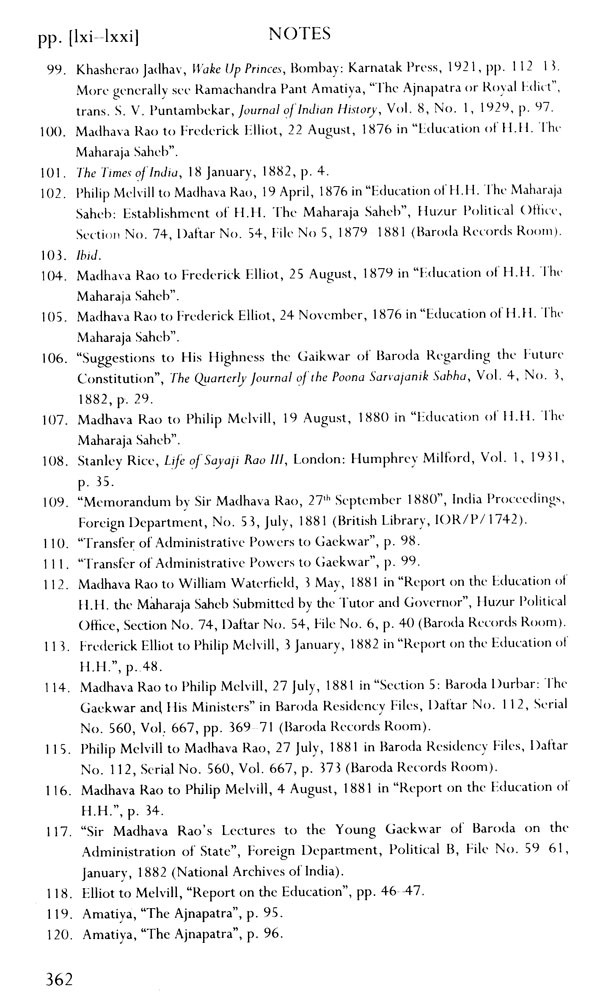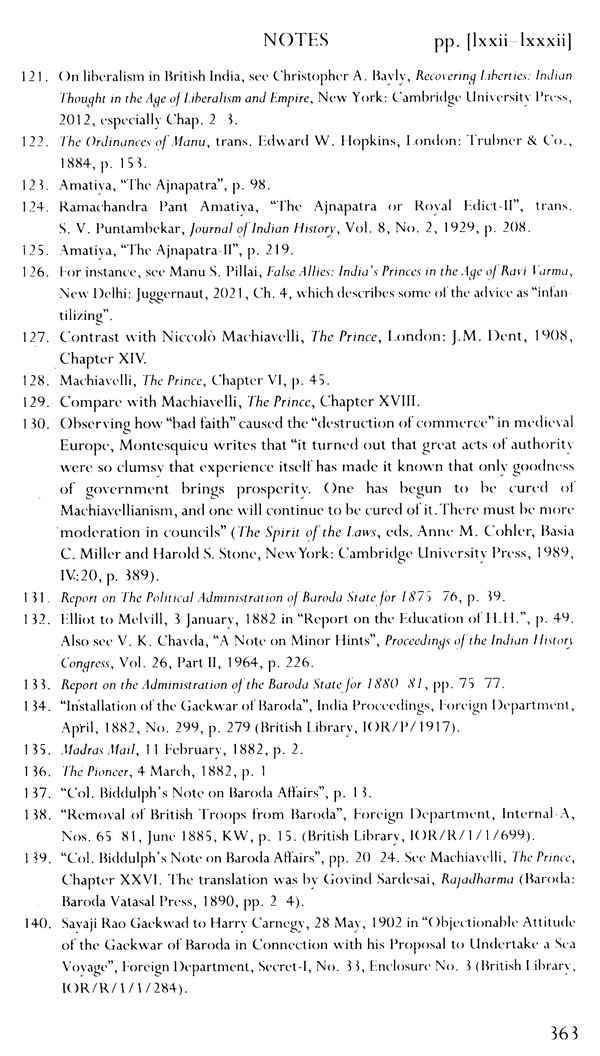About the Book Hints on the Art and Science of Government was the first treatise on statecraft produced in modern India. It consists of lectures that Raja Sir T. Madhava Rao delivered in 1881 to Sayaji Rao Gaekwad III, the young Maharaja of Baroda. Universally considered the foremost Indian statesman of the nineteenth century, Madhava Rao had served as dewan (or prime minister) in the native states of Travancore, Indore and Baroda. Under his command, Travancore and Baroda came to be seen as 'model states', whose progress demonstrated that Indians were capable of governing well.
Rao's lectures summarise the fundamental principles underlying his unprecedented success. He explains how and why a Maharaja ought to marry the classical Indian ideal of raj dharma, which enjoins rulers to govern dutifully, with the modern English ideal of limited sovereignty. This makes Hints an exceptionally important text: it shows how, outside the confines of British India, Indians consciously and creatively sought to revise and adapt ideals in the interests of progress.
This landmark edition contains both the newly rediscovered, original lecture manuscripts; and an authoritative introduction, outlining Rao's remarkable career, his complicated relationship with Sayaji Rao III, and the reasons why his lectures have been neglected-until now.
About the Author Rahul Sagar is Global Network Associate Professor of Political Science at New York University Abu Dhabi. He previously taught at Princeton University and Yale-NUS College. His first book, Secrets and Leaks: The Dilemma of State Secrecy was awarded the Myres S. McDougal Prize and the Louis Brownlow Book Award.
Preface In 2016, I was immersed in constructing an index of English-language periodicals published in colonial-era India. Trawling through the archives, I came across the quaint sounding Feudatory and Zemindari India: An Illustrated Monthly Journal Published in the Interests of the Ruling Princes, Chiefs and Zemindars, etc. Upon diving in, it became clear that far from being some amusing gallery of exaggerated pomp and pag. eantry, Feudatory and Zemindari India had in fact been a significant publication, serving as a platform for voices from the semi-autonomous Native States that comprised "Indian India". I was especially struck by a short article entitled "The Education of the Ruling Princes: A Note by the Late Raja Sir T. Madhava Rao", which called for Maharajas ruling these principalities to be given a "special education" that would enable them to live up to their "duties and responsibilities". Who was this highly decorated figure? And what had become of his plea?
I soon learnt how little I knew about "Indian India". The Raja Sir, it turned out, was one of the towering personalities of nineteenth- century India, and as Dewan of Baroda he had been responsible for its Maharaja's "special education". Rao's enterprise was fascinating, because it appeared to be a modern example of what is known as the "mirror of princes"-a genre of ethics in which writers directly address rulers on the tricky business of exercising power. Excited, 1 acquired a copy of Minor Hints, the book that apparently contained a facsimile of the lectures that Rao had delivered to Sayaji Rao Gaekwad, the ruler of Baroda.
Introduction Raja Sir Tanjore Madhava Rao is virtually unknown today. This is a tragedy, for Rao was universally considered the foremost Indian statesman of the nineteenth century. His domain was what the British termed the Native States or what Indians pointedly described as Indian India. Between 1858 and 1883, Rao had the unique distinction of serving successively as Dewan (or Prime Minister) to the Maharajas of Travancore, Indore, and Baroda. In each instance, he was celebrated for displaying excellence in administration. On his watch, Travancore and Baroda in particular came to be seen as "model states", whose progress demonstrated that Indians were capable of governing themselves well. Hints on the Art and Science of Government is the harvest of Rao's exceptional career. It came into being when Rao was tasked with preparing Sayaji Rao Gaekwad to become Maharaja of Baroda. Its contents are the lectures Rao delivered to the young prince. The lectures summarize the principles, gleaned from long experience, to which Rao credited his practical successes. These principles combine the classical Indian ideal of raj dharma, which enjoins rulers to govern dutifully, with the modern European ideal, familiar to readers of Charles de Montesquieu, that rulers must eschew arbitrariness. Put simply, Rao advised rulers to be tough on themselves but gentle toward citizens.
Hints commends itself to posterity for two reasons.
**Contents and Sample Pages**
